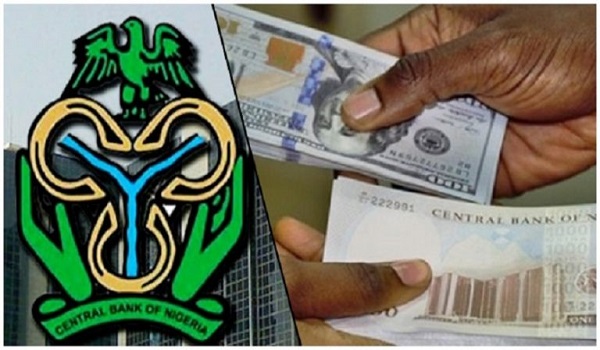Nigeria’s currency, the naira, experienced a significant depreciation, losing N90.43 of its value against the U.S. dollar within the past week, despite a rise in liquidity in the official foreign exchange (FX) market.
By the close of trading on Friday, the dollar was quoted at N1,631.21, marking a 5.54 percent drop from the previous week’s rate of N1,540.78 at the Nigerian Autonomous Foreign Exchange Market (NAFEM), according to data from FMDQ Securities Exchange Limited.
However, on a daily basis, the naira showed signs of recovery, appreciating by 1.72 percent, or N28.05, as the dollar dropped from N1,659.26 on Thursday to N1,631.21 by Friday.
In the parallel, or black market, the naira strengthened against the dollar on a week-on-week basis, gaining 1.92 percent, or N32. It closed at N1,665 per dollar on Friday, compared to N1,697 the previous week. Daily trading on the black market showed the naira holding steady at N1,665.
During the week, dollar supply surged by 14.63 percent, amounting to an increase of $133.66 million. The total volume of dollars supplied by willing buyers and sellers rose to $1.05 billion over four trading days, up from $913.40 million in the previous week.
In response to market volatility, the Central Bank of Nigeria (CBN) introduced a new Electronic Foreign Exchange Matching System (EFEMS) on Thursday.
The system is designed for authorized dealers in the Nigerian Foreign Exchange Market (NFEM) and is expected to become fully operational by December 1, 2024, following a two-week test phase in November.
In addition, the CBN disclosed on Friday that it had sold a total of $543.5 million to authorized dealer banks in the Nigerian Foreign Exchange Market between September 6 and September 30, 2024.
This move, conducted over 11 trading days, was aimed at stabilizing the market and addressing the rising demand for foreign exchange, particularly for commodity imports.
The sales were facilitated through two-way quotes, with exchange rates ranging from N1,530 to N1,605 per dollar, depending on the transaction day.
The largest sale occurred on September 26, 2024, when $80 million was sold at rates between N1,570 and N1,580 per dollar. These transactions were set on a T+2 value date, meaning settlement occurred two days after the trade.
Omolara O. Duke, Director of the CBN’s Financial Markets Department, emphasized the importance of these interventions in ensuring market stability.
“The CBN will continue to facilitate the supply of FX into the Nigerian foreign exchange market to ensure market stability and meet the country’s foreign exchange needs,” Duke said.
The CBN’s intervention aims to mitigate market volatility and support the naira as Nigeria grapples with economic pressures and heightened demand for foreign exchange.



